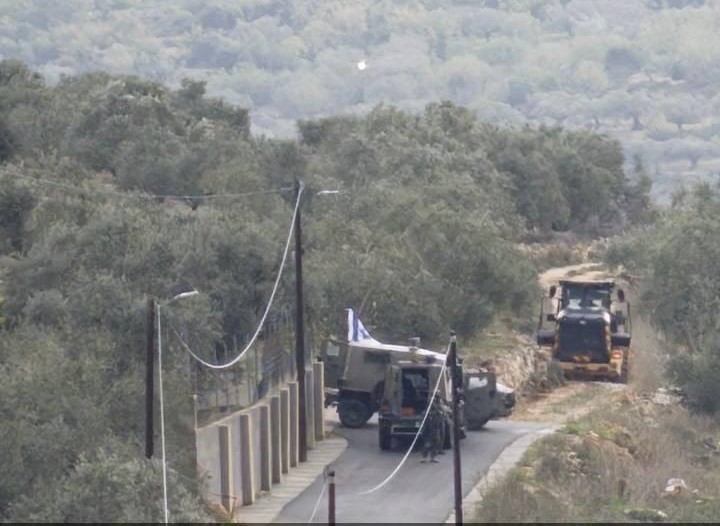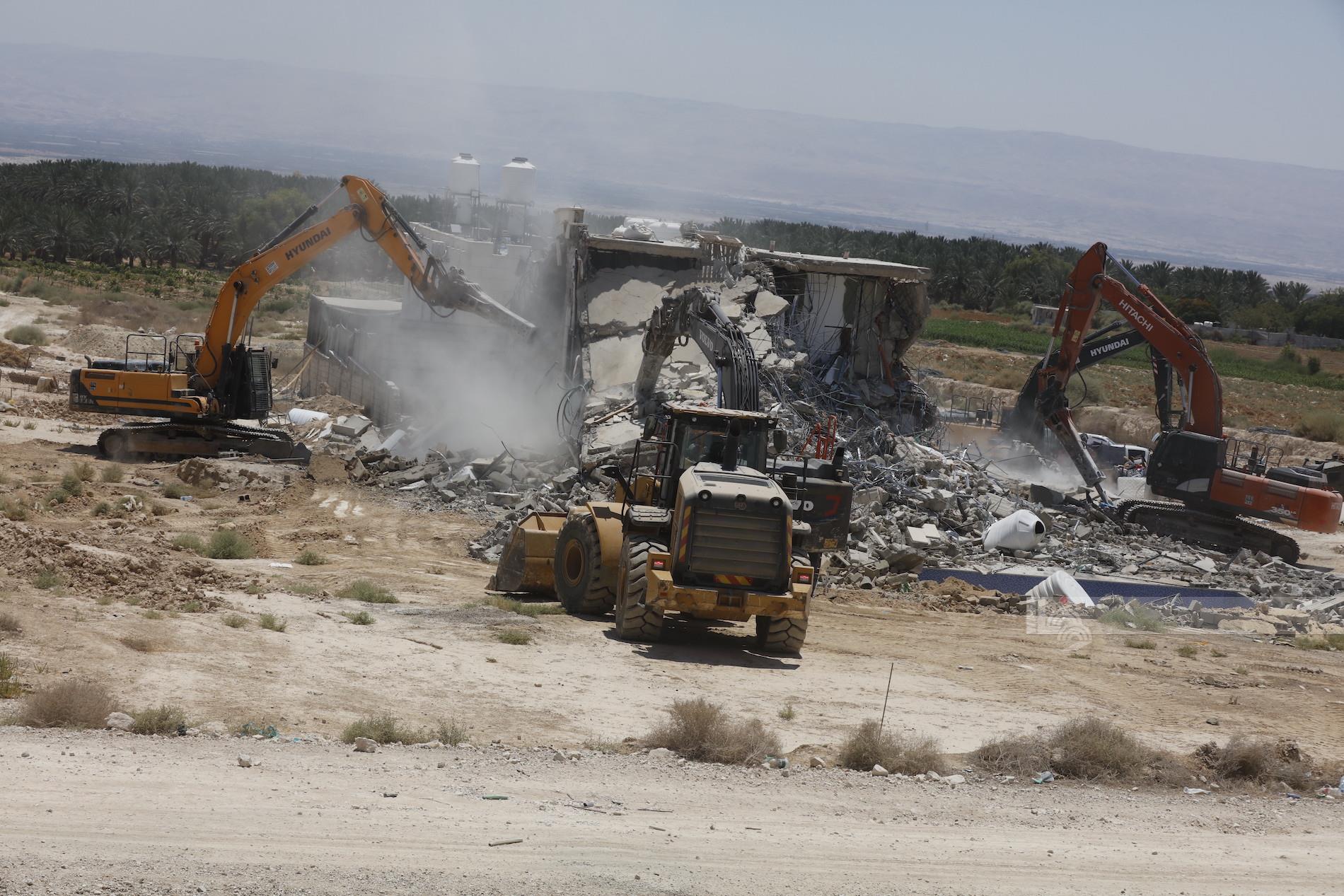TULKARM, Wednesday, September 23, 2020 (WAFA) – Israeli bulldozers Wednesday morning demolished a wedding hall located at the entrance of Jubara village, south of Tulkarm city, according to local sources.
Ihsan Awad, head of the Jubara Village Council, told WAFA that to their shock, a large unit of Israeli forces, escorting three bulldozers, raided the area, and cordoned off the hall, before the heavy machineries tore it down, reducing it to rubble.
Awad added that the 900-meter-square building consisted of a small residential apartment, inhabited by a family, who were forced out before the demolition happened. He noted that the demolished building belongs to a Palestinian citizen of Israel, who previously received demolition notices under the pretext of unlicensed building, to make room for the construction of a new colonial settlement industrial zone.
Almost a month ago, Israeli forces clamped down on peaceful protestors marching against Israel’s move to level a large swath of their land for the construction of a settler-only bypass road between Jubara and Shufa villages, causing several protestors to suffocate from teargas inhalation.
Israel demolishes Palestinian houses and structures almost on a daily basis as a means to achieve “demographic control” of the occupied territories.
Israel denies planning permits for Palestinians to build on their own land or to extend existing houses to accommodate natural growth, particularly in Jerusalem and Area C, which constitutes 60 percent of the occupied West Bank and falls under full Israeli military rule, forcing residents to build without obtaining rarely-granted permits to provide shelters for their families.
In contrast, Israel argues that building within existing colonial settlements is necessary to accommodate the “natural growth” of settlers. Therefore, it much more easily gives the estimated 550,000 Jewish Israeli settlers there building permits and provides them with roads, electricity, water and sewage systems that remain inaccessible to many neighboring Palestinians.
K.T./ K.F.










